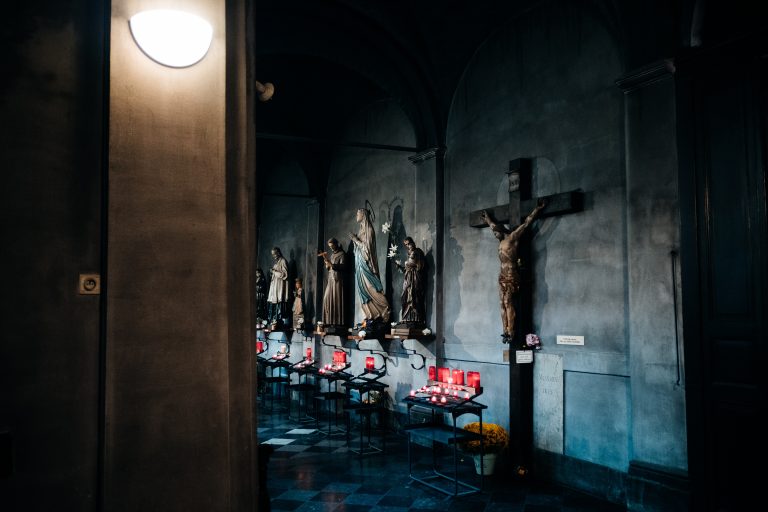[fbshare type=”button” float=”right” width=”100″] By Fr. Thomas Acklin, OSB, and Fr. Boniface Hicks, OSB

A principal work of the spiritual director is to help Christians grow in prayer. Fr. Bennet Kelley, CP, in a wonderful work entitled Spiritual Direction According to St. Paul of the Cross, states strongly, “Unless a person is willing to give him/herself to a life of prayer and daily seeking God, they are not yet ready for ongoing spiritual direction.” For this reason, it is necessary in every spiritual direction meeting to speak about prayer, and if the directee does not bring it up, the spiritual director should always ask, “How is your prayer?” In a related way, the spiritual director will often do well to ask, following a directee’s narrative about a particular situation, “What happened when you brought that to the Lord in prayer?” As noted by Fr. Bennet, prayer is at the heart of spiritual direction and spiritual direction should always be accompanied by the ongoing practice and growth in the life of prayer.
Prayer is not simply a personal practice like stretching or exercising or brushing one’s teeth. Christian prayer is a living relationship with God Who has revealed Himself as Father, Son, and Holy Spirit. Thus, talking about prayer is ultimately always a matter of talking about one’s relationship with God. In the simple observation of Abbot John Chapman, “the only way to pray is to pray; and the way to pray well is to pray much. If one has no time for this, then one must at least pray regularly. But the less one prays, the worse it goes.” For this reason, checking on the frequency and regularity of prayer is an essential part of spiritual direction. As human beings pray more, they learn how to pray better—just as relationships become more natural with personal investment. We are made for this. We are made for a one-on-one relationship with God and the more we invest in that relationship, the more it will grow.
As we dedicate ourselves more and more to prayer, the habitual disposition to unceasing prayer begins to grow in us. The regular effort to recollect and place ourselves in God’s presence pays off over time as our awareness of Him steadily grows in our souls. In addition to regular recollection, we need an extended period of time every day for prayer, with a substantial percentage of that time dedicated to silence, simply to be in the Lord’s presence and open our hearts to listen to Him. A good rule of thumb is that, like in a good conversation, at least half of the time we spend in prayer should dedicated to silently listening to God. As we come to discover that what He has to say is more important than what we have to say, that silence may become a larger and larger part of our prayer time.
As we spend more time in prayer, our prayer becomes more silent. This is because God Himself often “speaks” in silence, and indeed speaks most eloquently in silence. We have already adapted the words attributed to St. Francis, “Preach the Gospel always, and if necessary, use words,” to apply them also to God. He is always speaking to us, and when necessary He uses words. He often speaks through actions and presence more than through words. Listening is an act of trust, and as our trust grows, our listening, receptivity, and passivity (toward God) also grow. It is an act of trust to believe that God is even there. As we become more convinced of this and more convinced of His love, we need fewer and fewer proofs, and our capacity to trust and receive from Him grows proportionately. Eventually the silence and learning to trust in the face of His apparent absence become purifying movements that deepen our capacity for union.
Due to our misconceptions about God, it is better to continue being formed in the Church’s teaching about God in addition to speaking explicitly to Him, and it is important to speak with our spiritual director about our prayer. A spiritual director will be able to help us see where we have developed distorted concepts about who God is and can help to correct our understanding. Over time, we become more sensitive to the ways that God actually responds to our efforts, our failures, our joys, and our pains. Over time, that inner circle of our souls becomes more operative, in which the intuitive knowing is dominant, and we have the capacity for a single, simple, prolonged act of love. We can describe this as attentive, loving listening to God, a silent knowing, or also as long looks of love. God wants to reveal Himself in that love in a way that goes beyond and exceeds any of our conceptions of Him.
Spiritual Direction: A Guide for Sharing the Father’s Love offers a comprehensive guide for all who provide or seek spiritual direction. Authors Fr. Thomas Acklin, OSB, and Fr. Boniface Hicks, OSB, are Benedictine monks of St. Vincent Archabbey in Latrobe, PA.